Election 2017: Why did Canterbury and Mansfield switch sides?
- Published
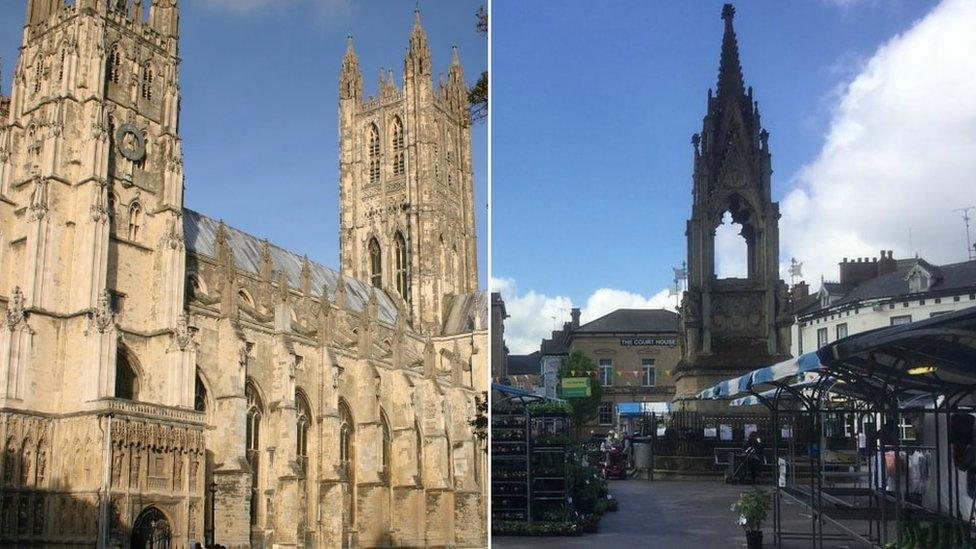
On a night of surprising results, few were as unexpected as the shock wins for Labour and the Conservatives in Canterbury and Mansfield respectively.
The cathedral city of Canterbury had been Conservative since 1918, but returned a Labour MP for the first time in 99 years. Meanwhile, 200 miles away in Mansfield, Nottinghamshire, a Tory will represent a seat that had been loyally Labour since 1923.
BBC News asked voters in both areas to explain the huge shift in the political landscape.
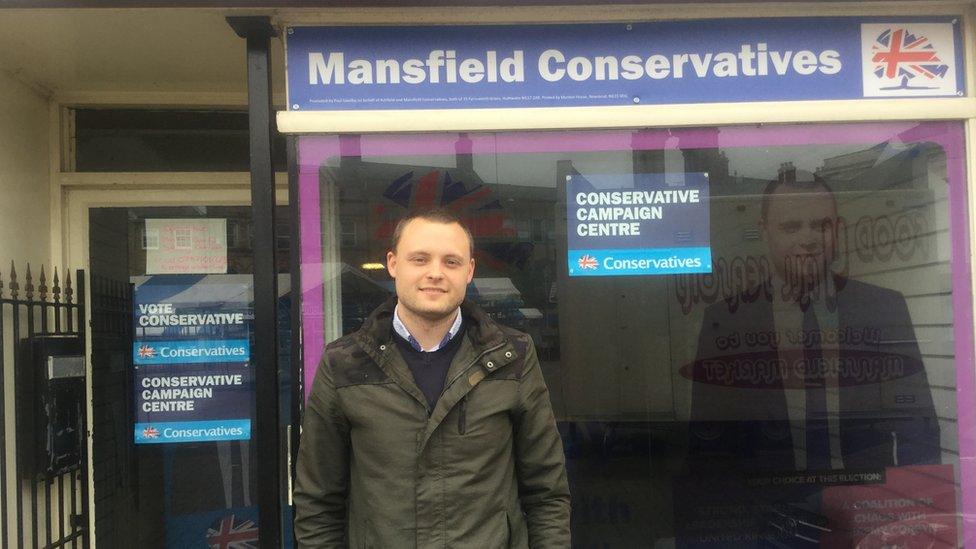
Ben Bradley, Mansfield's new MP, said younger people in the town were no longer tied to Labour in the way their parents were
The election of Ben Bradley with a 1,057 majority was such a surprise, the returning officer - perhaps out of habit - initially called a Labour victory.
The Nottinghamshire former mining town had not elected a Conservative MP since the constituency was created in 1885.
Sean Wright, 44, of Mansfield, said he could not believe "an old mining town, an old working class town, had decided to vote for the Tories".
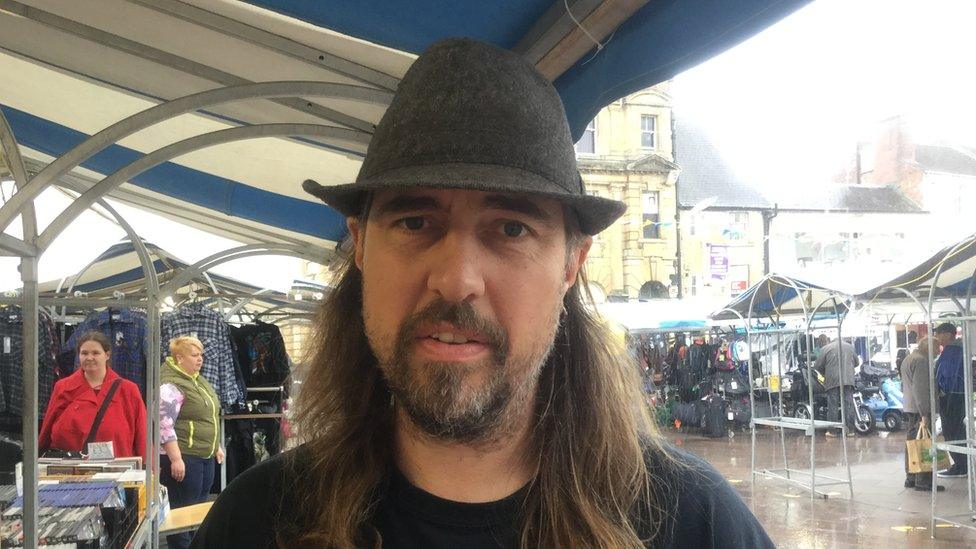
Sean Wright said he "can't see it being a good thing" for Mansfield
"I am very disappointed - I have always been a Labour supporter," the market trader said.
He said the change was perhaps due to Brexit. In the 2016 Referendum, 70.9% of voters opted to leave the EU while in the 2015 general election, one in four voted UKIP.
"People started voting UKIP and then, I don't know why, I think they thought Conservatives were more for leave than remain," he added.
He said he was not sure how this change would affect the town but added: "I can't see it being a good thing".
Meanwhile 29-year-old Laura McGeachie, a health care assistant, said she was pleased with the change.
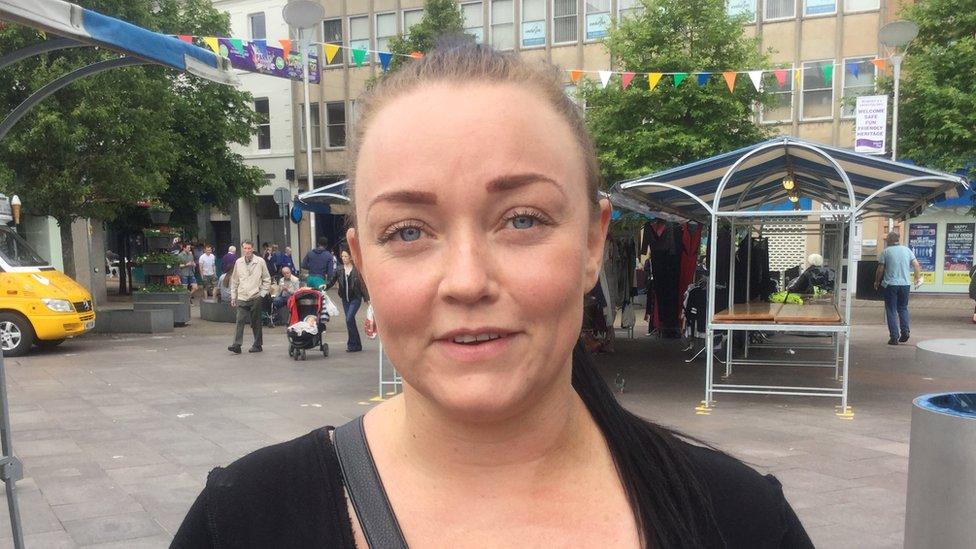
Laura McGeachie hopes the Conservatives will bring new life into the town
"It is good," she said. "I voted Conservative. My main thing was Brexit.
"I wanted someone who is able to do a good job for us. I don't think Jeremy Corbyn will be able to do that as he is so opposed to it."
She added that she believed Labour and the former Labour MP Sir Alan Meale had done "absolutely nothing" for Mansfield for years.
"We need a change. The state of the town compared to what it used to be is absolutely terrible.
"Hopefully the Conservatives will help change this and bring new life to the town."
The decline of Mansfield's mining industry over the past 30 years was one explanation for the electoral change, said Tony Roe, BBC East Midlands Political Editor.
"The demographics have changed," he said. "It's a different place with new housing estates, like the one which surrounds the old mining union building, with homes selling for half a million pounds.
"There are new industries in the town now, some of the biggest and growing employers are involved in digital marketing. But it does have a lot of economically inactive, many of them unfit to work.
"There are also large numbers of people on low wages."
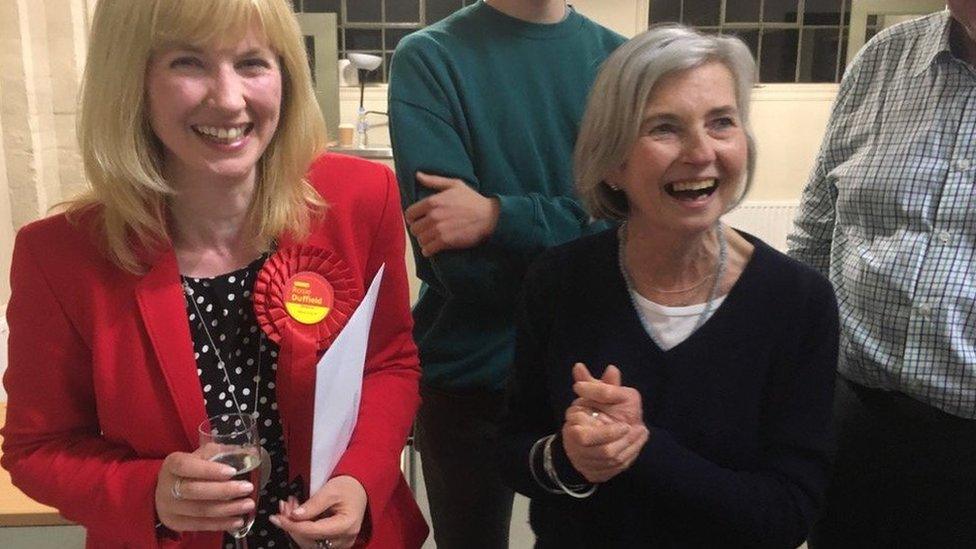
Labour's Rosie Duffield won the seat in Canterbury with a 45% share of the vote
Meanwhile in Canterbury, the city's large student population - there are three university campuses - has been credited for its shock switch to Labour.
Sir Julian Brazier, who had been the city's Tory MP for 30 years, saw his majority of nearly 10,000 in 2015 defeated by Labour's Rosie Duffield, who beat him by just 187 votes.
There are more than 30,000 students in the city, though not all of them were registered to vote there.
However, more than 8,000 new voters did register to vote this year.
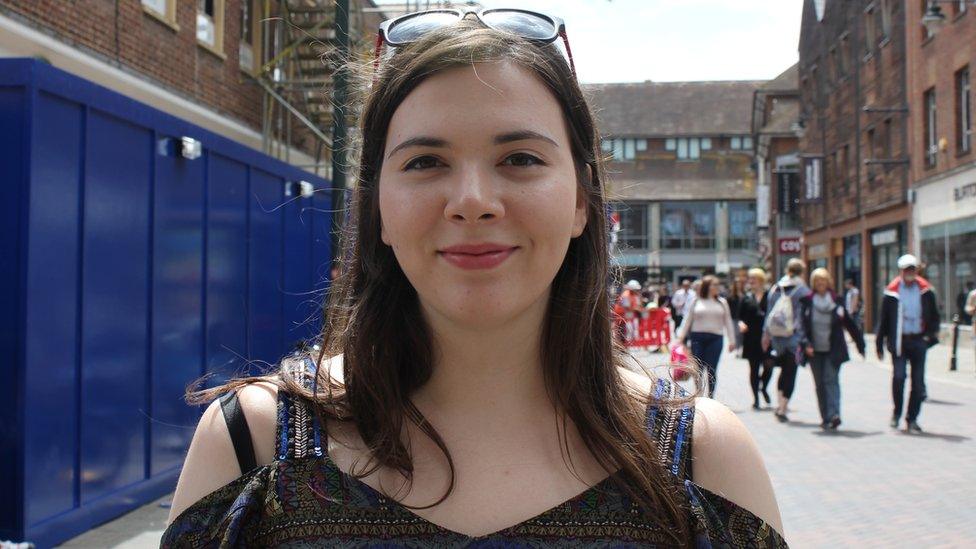
Grace Le-Bachelet said Jeremy Corbyn had proved people wrong
Grace Le-Bachelet, 21, and a student at the University of Kent, voted Labour because Jeremy Corbyn "is more for the people than Theresa May is".
"He seems quite radical and down-to-earth, and just more relaxed," she added.
"Labour's manifesto was more of benefit to students, with tuition fees and the NHS as well, which is so important to maintain.
"Today's result could have been higher for Labour, but they've come such a long way, and today Corbyn has proved people wrong."

Charlie Stannard said he was "chuffed" that his vote had made a difference
Charlie Stannard, an 18-year-old student at Canterbury College, said his vote for Labour was to "guarantee my future".
He said when he awoke to the news, he felt empowered.
"I felt very involved... I was very proud to have that opportunity [to vote Labour], because it was my first time voting as well."
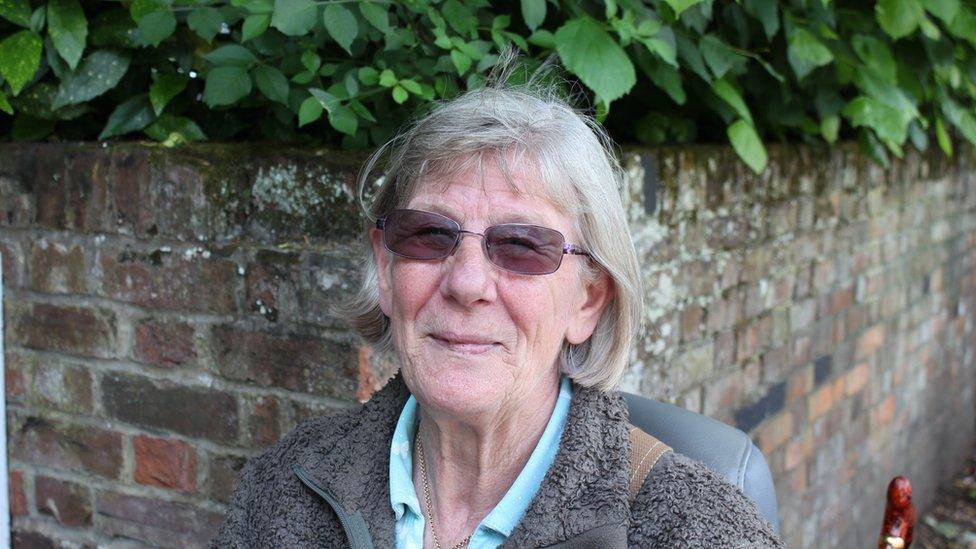
"I can't stop smiling," said Canterbury resident Carol Walker
The result left 67-year-old Canterbury resident Carol Walker "beaming from ear to ear".
"I can't stop smiling," she said.
"I couldn't believe it at first, I had to take a second look. It was so close.
"My vote was for the future generation.
"It wouldn't matter who got in with me. I've still got my state pension and my council bungalow. It's these youngsters. It's tough."
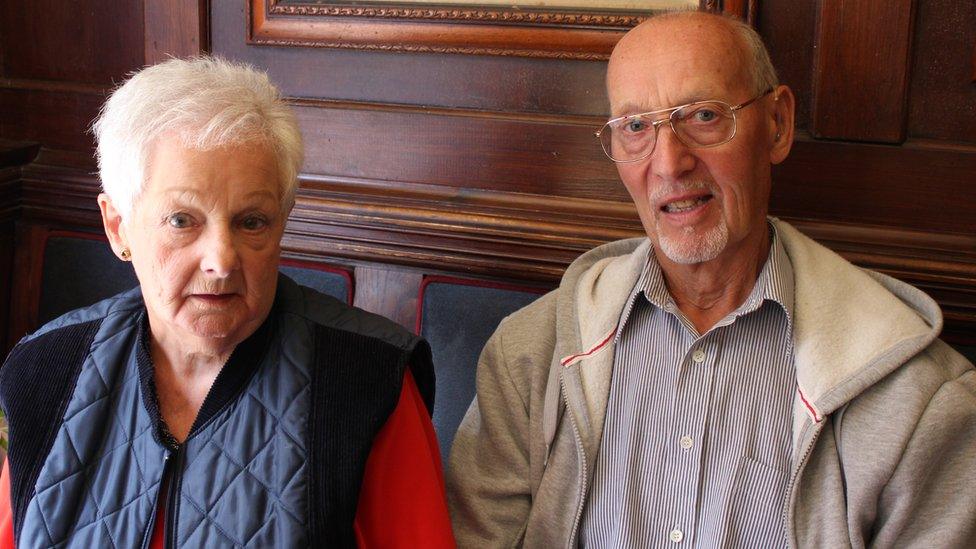
Elissa and Brian Lovett hope the shock defeat will be a wake-up call to the Conservatives
Brian Lovett and his wife Elissa, both 78 and staunch Conservative supporters, were shocked to wake up to the news that their long-standing MP had been ousted.
The retired couple have lived in Canterbury for nearly 60 years and believe it was the students that "overwhelmed everybody".
"They're going to move on once they've finished university. Is it going to help Canterbury? Is it going to help the likes of us?" Mrs Lovett said.
However, her husband conceded that the Conservatives had been a "bit too complacent" in the constituency, and a "shock was needed".
"Sometimes it can be a good thing it changes because it might make the Conservatives be a bit cautious of what they do in the Canterbury area if they get back in next time," he said.
Helen Catt, BBC South East Today Political Editor, said the result had even shocked Labour activists.
"The party had come close to taking it in the past but had never quite managed it, so why this year?
"Many are putting it down to a rise in the youth vote and that does seem a likely driver."
Concerns over Brexit - the constituency registered the narrowest Leave vote in Kent - and fears over the downgrading of the local hospital had also played into Labour's hands, she said.
"At the end of the day though, it may have been the change in political climate which helped pull off this shock win.
"The against-the-odds election of Jeremy Corbyn as Labour Leader and Donald Trump as US President have created a feeling that anything is possible in politics.
"That may have encouraged the left in Canterbury to unite as they've never managed to before and pull off a result they'd previously only dreamed of."